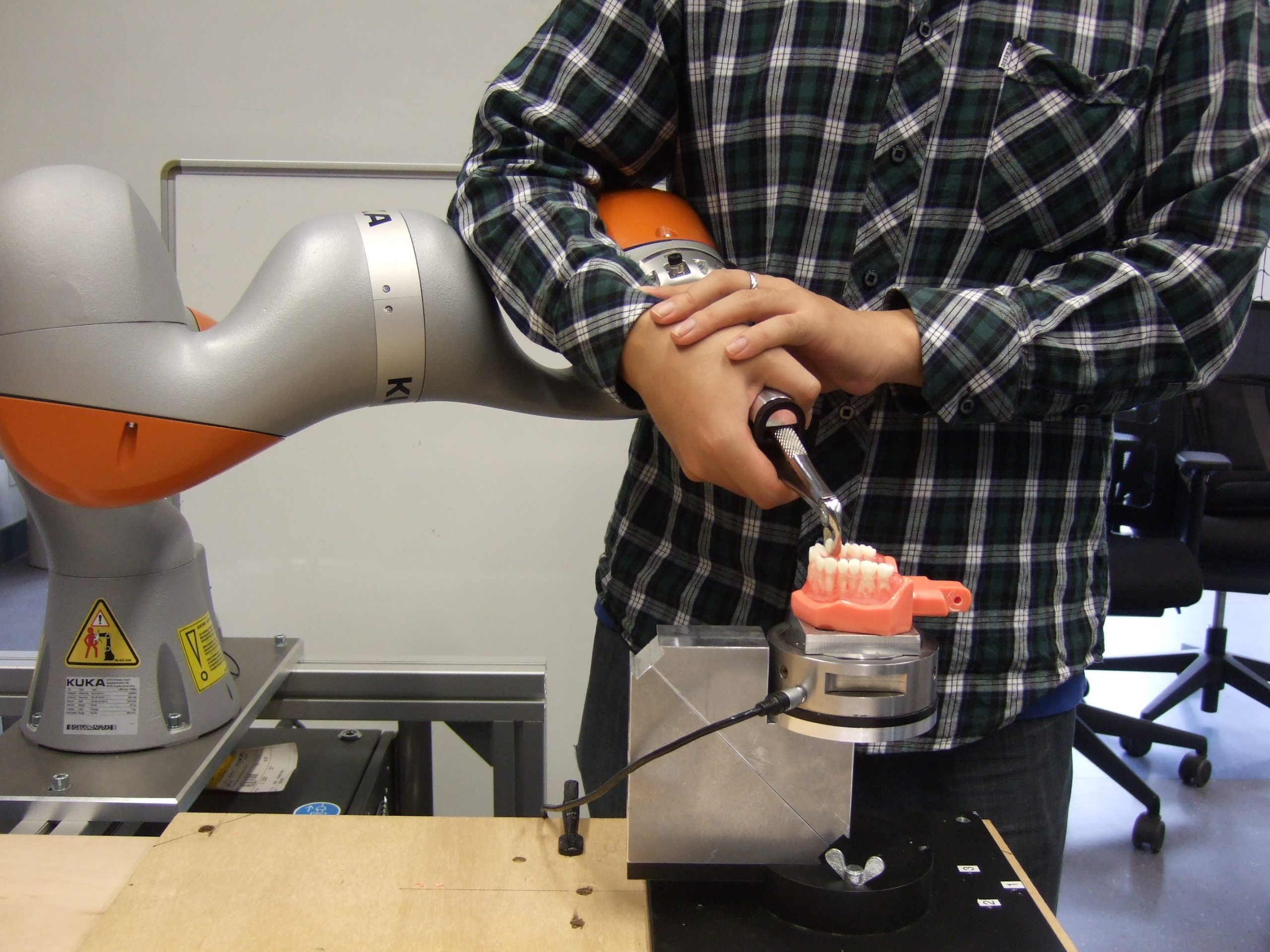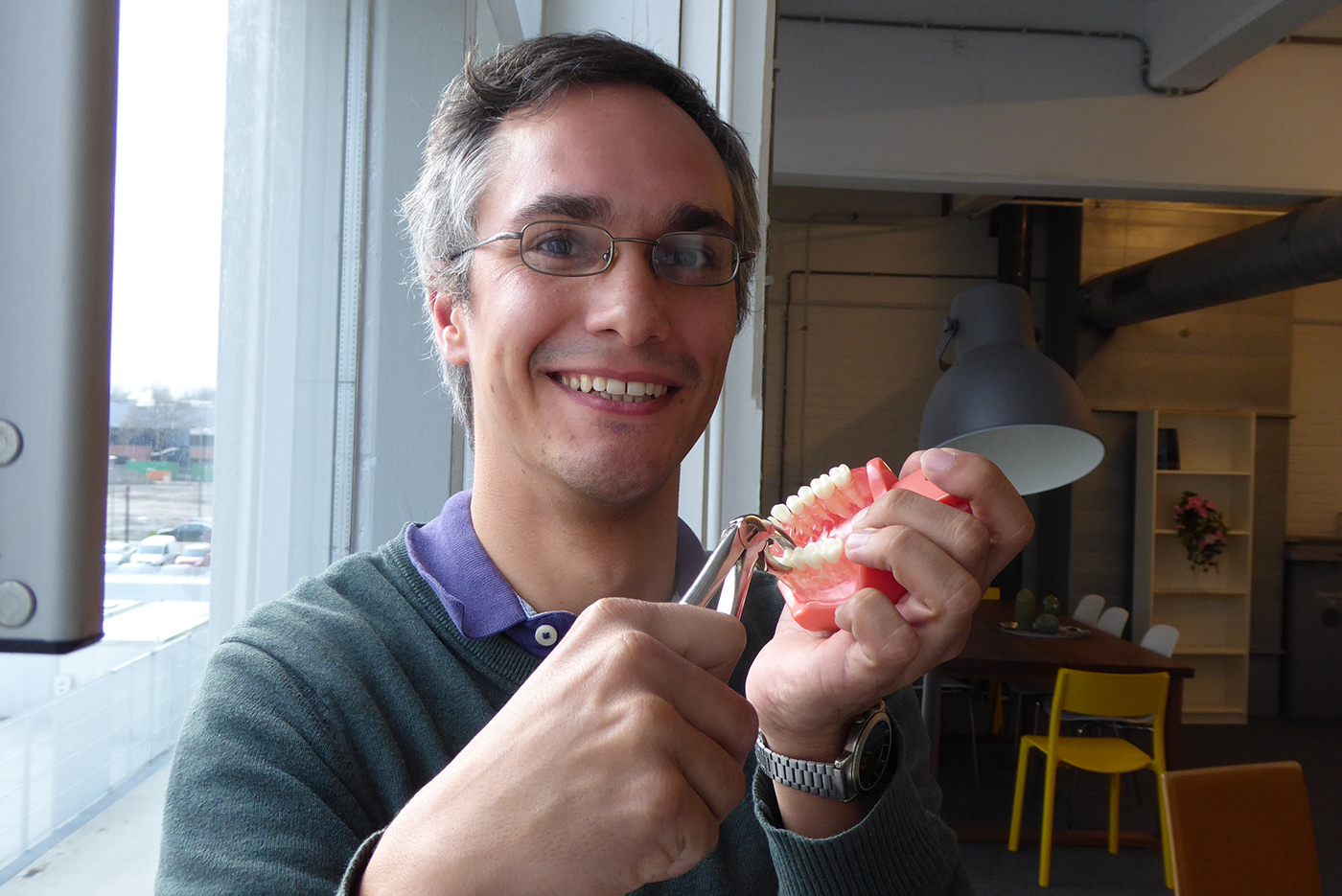A robot for training dentists and low-cost automated detection of parasites in cattle. These adventurous ideas from TU Delft earned an NWO Open Mind grant earlier this month.
Doe mij maar Nederlands
The Netherlands Organisation for Scientific Research (NWO) supports bold technological proposals with EUR 50,000 Open Mind grants. The finale took place at the NWO TEKNOWLOGY festival on 8 November 2018. Fifteen researchers pitched their ideas, five awards were granted. Two of the five landed in Delft. The funding allows researchers Tope Agbana MSc. and Dr Jens Kober (both at the 3mE Faculty) to further explore their bold ideas and present the outcome at the next festival.
Pulling teeth
OpenMind2018: Robot assistance in understanding and educating tooth removal procedures
Dental extraction is a frequent intervention at the dentist. Despite the rate of occurrence, it is difficult for dental students to get enough opportunity to practice the operation and hence to get enough experience to perform it swiftly and smoothly. Dental students practice their textbook knowledge on real patients, but it’s hard to find volunteers for tooth pulling. Would you say “yes”?
Robotic specialist Dr Jens Kober (TU Delft) and dental surgeon Tom van Riet (AMC Amsterdam) believe that robots may help teach students the right forces and movements for tooth extraction.


But first, they need to find out how experienced dentists do it. To this end, they will record dentists’ movements by means of a manoeuvrable robot arm. A complete jaw mounted on a sensor platform measures the resulting forces and torques. Preliminary measurements have shown that most dentists don’t know what they’re doing, weird as it may sound. The data show they all apply a downward force during the extraction, yet no one mentions it.
The grant will allow Kober and Van Riet to collect data from experienced tooth pullers to get a better knowledge of how they do it. Passing that knowledge on to the next generation by means of a training simulator could be the next step.
Parasite spotting
OpenMind2018: Smart Parasite Detector for Animals
Three million cattle die of a parasitic disease called nagana across Africa every year. The parasite is transmitted by the tsetse fly. Any treatment of the disease starts with early diagnosis. But taking blood samples in the field and bringing them to a laboratory for specialist inspection is not usable solution in practice.
Instead, researchers Tope Agbana MSc. and Professor Gleb Vdovine (3mE Faculty) propose a simple automated optical imaging platform combined with a Raspberry pi microcomputer. This Smart Parasite Detector for Animals (SPDA) recognises parasites in multiple frames from blood samples under the microscope.
The 50k grant allows the researchers and veterinary scientists from Ivory Coast and South Africa to collect blood samples in the field (Ivory Coast). They will be able to validate their diagnostic tool and establish their proof of principle. Further, they will be able to test prototypes of software and hardware on location. The team will also reserve an amount for a paid publication in a peer-reviewed journal, says Agbana.
The results will be presented at the next TEKNOWLOGY festival in November 2019, where you may take the podium as well to pitch your daring idea.
Do you have a question or comment about this article?
j.w.wassink@tudelft.nl


Comments are closed.